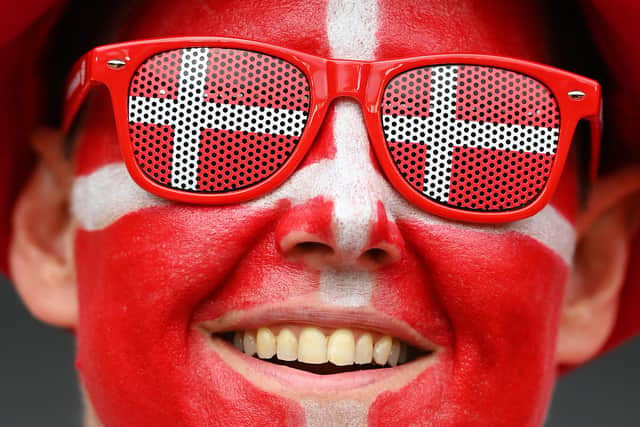Analysis: Humza Yousaf should address tough independence questions head-on
Independence will not lead to “rivers of milk and honey”, Humza Yousaf told an audience at Glasgow University.
In the first in a series of speeches focusing on the economic case for Scottish independence, the First Minister said dramatic change will not happen overnight.
Advertisement
Hide AdAdvertisement
Hide AdHowever, he argued households would be better off if Scotland split from the UK. Referring to recent analysis by the Resolution Foundation, he said this could amount to a boost of £10,200 if the average income and inequality matched similar countries such as Denmark, Ireland and Finland.


“That is the prize of independence,” Mr Yousaf added. “Not to match the performance of those independent countries overnight, no-one is saying that, but to start catching up so Scotland’s level of prosperity becomes more normal, more like that of comparable nations.”
These sorts of claims are nothing new in the independence debate, of course. Under Nicola Sturgeon, an SNP economic blueprint argued independence could be worth an extra £4,100 per person if Scotland matched the success of smaller nations such as New Zealand and Finland.
It goes without saying that such figures should be taken with a handful of salt. Other than providing something to aim for, they don’t really tell us much about what’s actually on the table.
“I’m not saying that on day one of independence you will get £10,200 in your bank account,” Mr Yousaf said in response to questions. “I’m simply making the point that you will see higher living standards.”
Professor Graeme Roy, who was chairing the event, said economists like him tend to think of change as a gradual process. Denmark’s manufacturing base took decades to develop, he said. It was nearly 50 years before the UK stopped being Ireland’s largest export market. How long would it take for Scotland to see the benefits envisioned by the First Minister?
“I’m not selling people independence as being an overnight change, that somehow the day after we become independent that there will be rivers of milk and honey and manna will fall from the sky,” Mr Yousaf said. It would be a “transitional process”.
James Cook of the BBC highlighted the large gap between, say, Ireland’s 50 years and Mr Yousaf’s “not overnight”.
Advertisement
Hide AdAdvertisement
Hide Ad“I was wondering if we could maybe get to somewhere in between the two of those that’s a bit more realistic,” he said. “How long, really – are we talking years, decades, half a century – before Scotland would be in this strong position that you aspire for it to be in?”
Mr Yousaf said it wasn’t possible to provide “a date in the calendar [for] when we would see, for example, X level of productivity, or X level of growth”. Which is true, of course, but not really what was asked. Nobody is demanding an exact date.
All of this might feel a bit hypothetical. After all, a second independence referendum is unlikely to happen any time soon.
But as the SNP gears up to fight a general election campaign with independence front and centre, voters deserve an honest conversation. Mr Yousaf’s future speeches should address the tough, awkward issues head-on.
Comments
Want to join the conversation? Please or to comment on this article.
